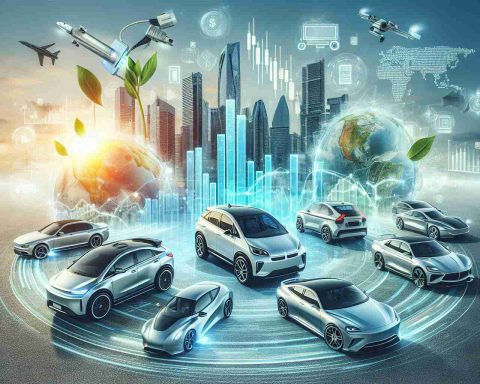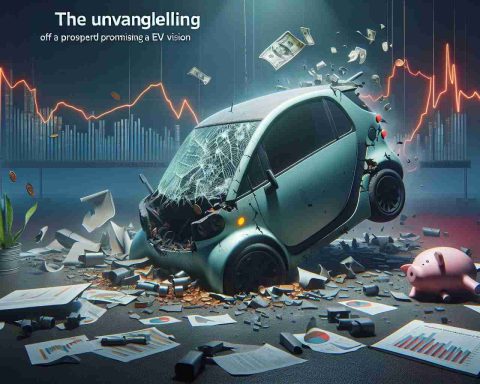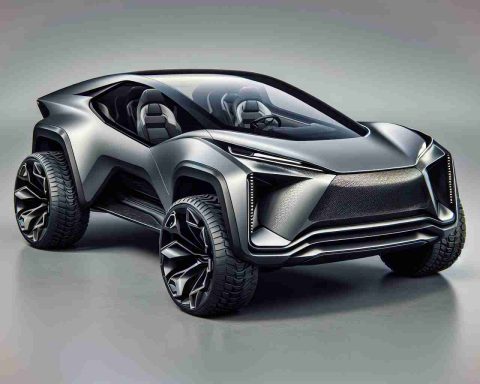Exicom Launches Harmony Boost for a Sustainable Future
Exicom, a leader in the electric vehicle (EV) charging sector, has unveiled an innovative charging solution at the Bharat Mobility Global Expo 2025. This groundbreaking technology, named Harmony Boost, aims to revolutionize the EV charging experience while integrating renewable energy sources effectively.
This advanced charging system is designed to harness solar energy alongside traditional grid inputs. Featuring an intelligent Battery Energy Storage System (BESS), Harmony Boost can manage energy efficiently, ensuring high charging speeds of up to 400 kW. This capability means that users can charge their EVs quickly and more sustainably, reflecting the growing demand for eco-friendly transportation solutions in India.
The centerpiece of Harmony Boost is its ability to maximize the consumption of renewable energy, mitigating challenges like solar power intermittency and peak grid demand. This innovative approach not only streamlines the charging process but also promotes a greener environment.
Exicom’s Managing Director, Anant Nahata, highlighted the company’s commitment to achieving net-zero carbon emissions in transportation. He emphasized that Harmony Boost not only integrates clean energy but also optimizes load balancing, enhances scalability, and reduces costs, ultimately creating a superior charging experience.
As the demand for EVs surges, solutions like Harmony Boost are paving the way for a more sustainable electric future, ensuring that drivers have access to efficient and eco-conscious charging options.
Transforming Transportation: The Broader Impact of Harmony Boost
The launch of Harmony Boost by Exicom represents a pivotal moment not just for the electric vehicle (EV) industry, but for society’s approach to sustainability. As countries strive for net-zero emissions, the shift to renewable energy sources within transportation systems resonates across multiple sectors. Increased use of EVs, coupled with innovative charging technologies, reflects a wider cultural shift towards prioritizing environmental consciousness.
Such advancements have profound implications for the global economy. With EV adoption expected to rise significantly—market analysts project a growth of over 20% annually—countries that invest in infrastructure like Harmony Boost stand to gain a competitive advantage. A sustainable charging ecosystem can spawn new job opportunities in tech, installation, maintenance, and renewable energy sectors, further solidifying economies that embrace green technology.
However, as with any technological advancement, environmental effects must be considered. The integration of energy storage systems like battery storage can alleviate pressure on power grids, minimizing early-stage energy wastage. Looking ahead, the rise of smart charging stations promises to optimize energy usage and facilitate grid resilience, particularly as more renewable sources come online.
Ultimately, technologies like Harmony Boost underscore the long-term significance of transitioning to a sustainable future, encouraging not only cleaner energy consumption but also fostering a more eco-conscious global community. As Exicom sets its sights on greater emissions reductions, the message is clear: innovation in the EV charging sector is indispensable to achieving a sustainable and resilient future.
Revolutionizing EV Charging: Exicom’s Harmony Boost Rises to the Challenge
Exicom Launches Harmony Boost for a Sustainable Future
Exicom, a prominent player in the electric vehicle (EV) charging market, has made significant strides with the introduction of its latest product, Harmony Boost, unveiled at the Bharat Mobility Global Expo 2025. This innovative charging solution is set to transform the EV charging landscape by seamlessly integrating renewable energy sources, particularly solar energy, into its operation.
# Key Features of Harmony Boost
1. High Charging Capacity: Harmony Boost boasts impressive charging speeds of up to 400 kW, allowing for rapid charge times that are crucial for today’s EV drivers.
2. Battery Energy Storage System (BESS): This intelligent system not only supports the efficient management of energy but also enables the use of stored energy during peak demand times, ensuring that charging is reliable and accessible.
3. Solar Energy Integration: By incorporating solar power, Harmony Boost maximizes the use of renewable resources, effectively addressing common issues such as solar intermittency.
4. Enhanced Load Balancing: The technology optimizes energy distribution, reducing the strain on traditional power grid infrastructures, especially during high-demand periods.
5. Cost Efficiency: By utilizing renewable energy and optimizing operational efficiency, Harmony Boost aims to reduce overall charging costs, making it an attractive option for both users and providers.
# Pros and Cons of Harmony Boost
Pros:
– Quick charging times reduce wait periods for EV users.
– Integration of renewable energy supports sustainability efforts.
– Advanced technology improves energy management and cost savings.
Cons:
– Initial investment for infrastructure may be high for some operators.
– Dependence on solar energy may limit charging during non-sunny conditions unless supplemented with grid power.
# Use Cases
– Urban Charging Stations: Ideal for city environments where quick turnaround times for charging can accommodate high volumes of EV traffic.
– Commercial Fleets: Businesses operating electric delivery or service vehicles can benefit from the efficiency and cost savings offered by Harmony Boost.
– Residential Integrations: Potential for installation in private charging units, allowing homeowners to utilize and store solar energy for personal EV use.
# Market Trends
With the EV market expected to grow exponentially in India and globally, the demand for efficient and sustainable charging solutions is rising. Innovations like Harmony Boost align perfectly with national goals for reducing carbon emissions and increasing renewable energy usage in transportation.
# Future Insights
Looking forward, the EV charging industry may see increased collaboration between technology providers and renewable energy companies to enhance the capabilities of charging solutions. As consumer awareness of sustainability rises, products that promote environmental benefits will likely gain traction.
For further information about the advancements in EV technology by Exicom and their commitment to sustainability, visit Exicom.














